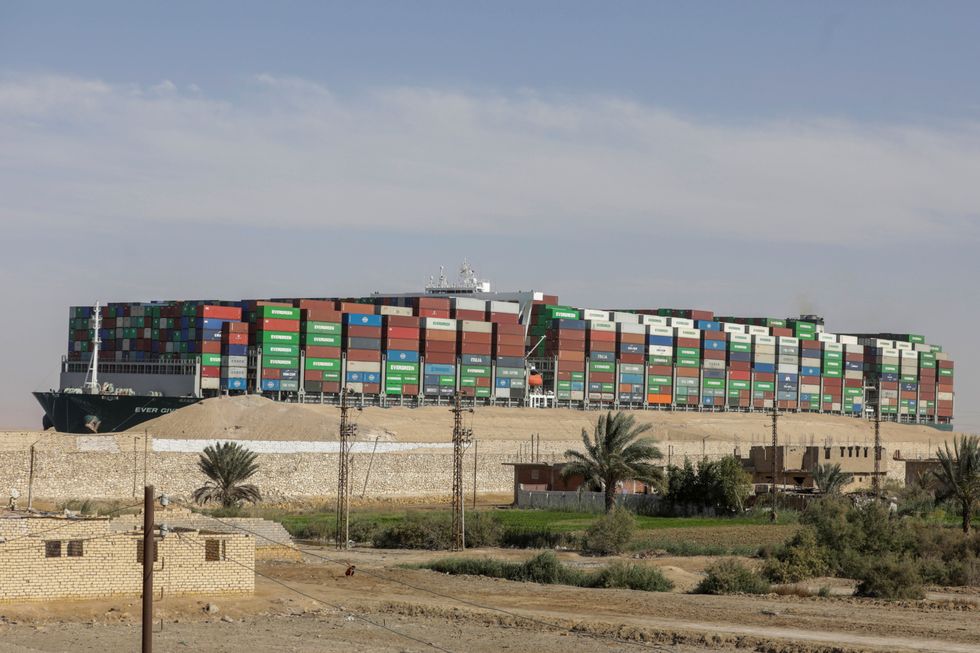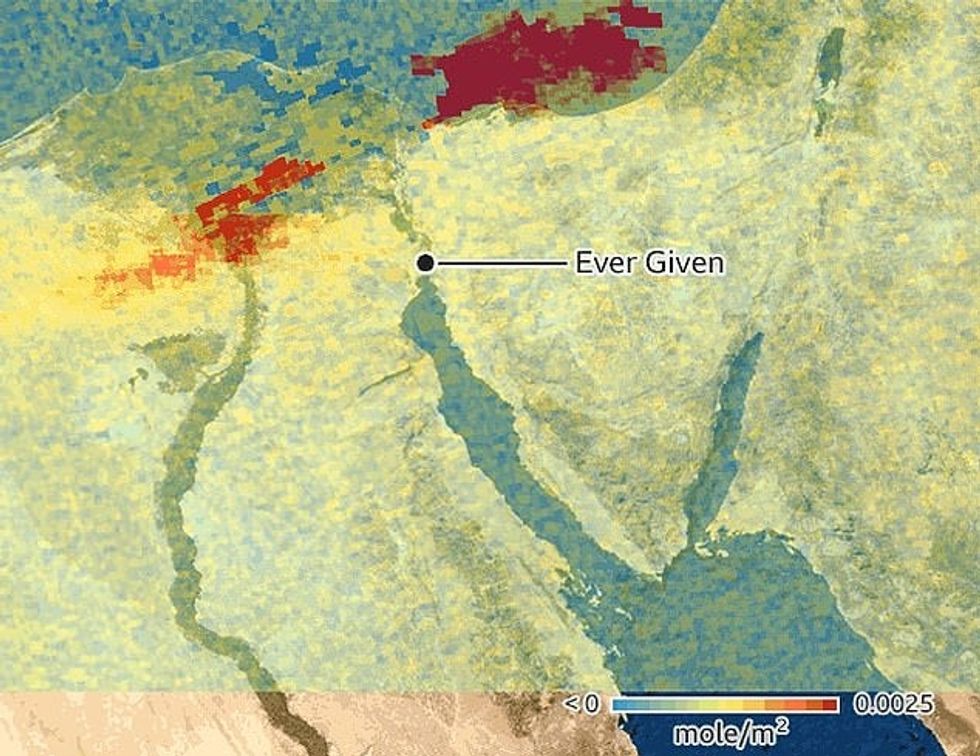Sandra Salathe
Apr 15, 2021

Tropomi
Last month, the Japanese-owned cargo ship, Ever Given, became diagonally stuck in the Suez Canal for six days - snarling cargo routes and generating a tidal wave of memes.
Egyptian personnel and international salvage specialists worked round-the-clock trying to dislodge it. Now, satellite data suggests the jam may have led to a notable spike in sulphur dioxide emissions.
Evidence from the Tropomi apparatus on the the EU’s Sentinel-5P satellites revealed boats stuck in ‘hotelling mode’ during the jam were pumping out poisonous gas caused by the burning of fuel oil used in ship engines.
“When the ships are moving, when they’re actually cruising, they are emitting more sulphur dioxide than when they’re just hotelling,” Dr Maryam Pourshamsi, an Earth Observation specialist with Airbus Defence and Space, told BBC News.
“But it’s the fact that we have so many ships collected together, all parked, that we get to see this signal in the Sentinel-5P satellite data,” she added.
Data shows after the Ever Given was freed, sulphur levels quickly returned to normal. Surely that can’t be a coincidence.
International shipping is responsible for about 2.5% of all global greenhouse gas emissions, according to the European Commission.
Because a vast majority of vessels run on oil-based products and have enormous engines, they are more harmful to the environment than cars or planes. Weighing at 200,000 tonnes, the Ever Given is 400m-long (1,312ft) and has a maximum capacity of 20,000 containers. At the time it became lodged in the canal, it was carrying 18,300 containers.
On Wednesday, Egyptian authorities seized the massive cargo ship, with an Egyptian court ordering the vessel’s Japanese owner, Shoei Kisen Kaisha, to pay $900 million in compensation for losses.
The International Maritime Organization (IMO) is currently working on ways to improve the maritime industry’s reputation and hopes to narrow total annual greenhouse gas emissions from international shipping by 2050.
Top 100
The Conversation (0)















